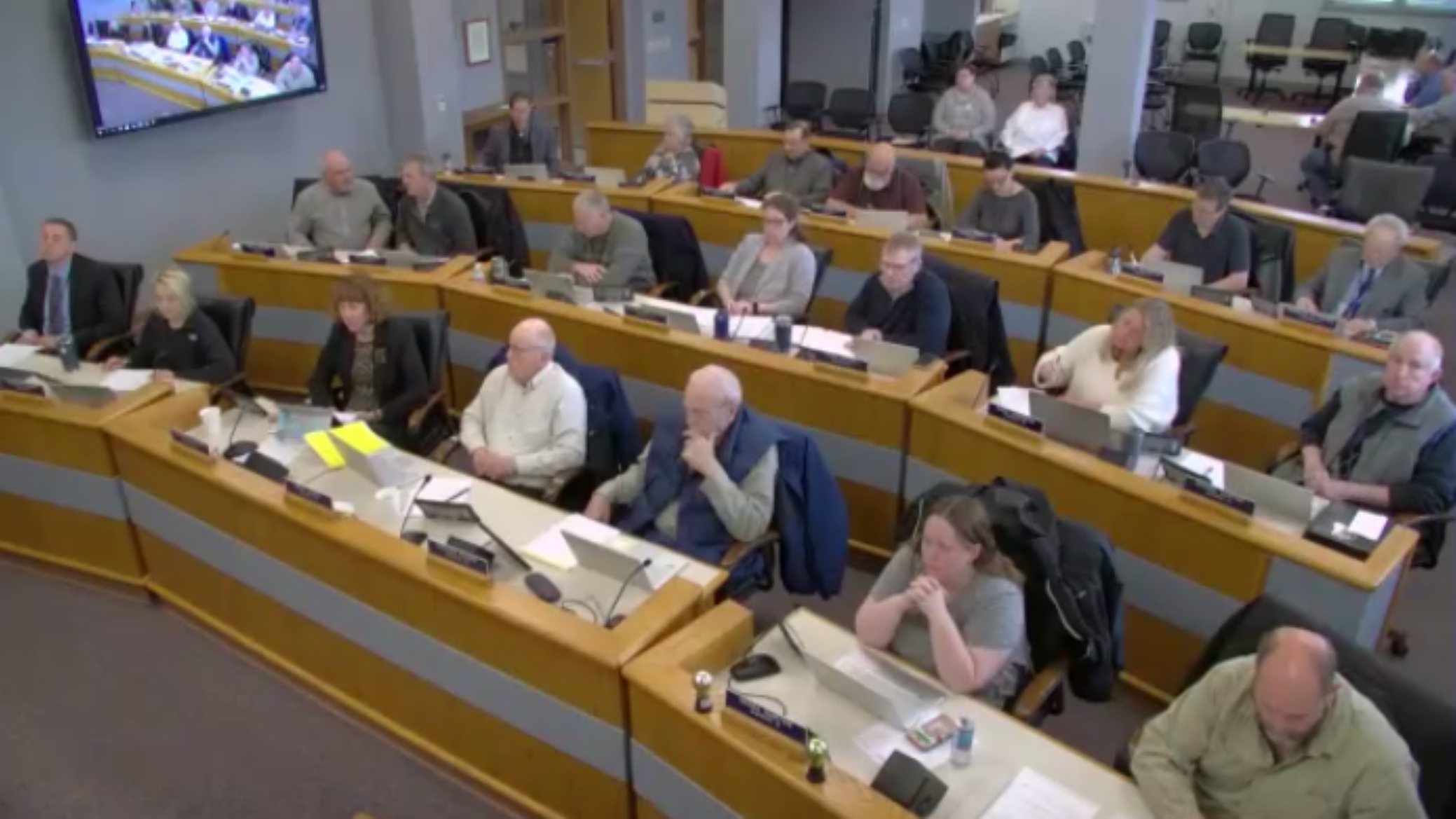The Door County Board of Supervisors on Tuesday voted down a proposal from its administrative committee that would have limited public comment at the board’s meetings to in-person attendees only, eliminating an option to comment via phone or Zoom that has been in place since the start of the pandemic.
Multiple supervisors criticized the proposal, and several others said providing as many opportunities as possible for residents to speak is a good thing and shouldn’t be taken away. Supervisors cited the length of time it takes for non-Sturgeon Bay residents to attend County Board meetings – which are held during the work day – as well as the county’s unique geography and the number of part-time residents who spend parts of the year in other states.
County administrator Ken Pabich said the administrative committee’s intent was not to limit public comment but to change the forms in which it is delivered. He pointed to written submissions and a resident’s ability to call their supervisor before a meeting as other options, in addition to in-person attendance.
Pabich said the proposal came about as an attempt to resolve a conflict between two sections of the County Board’s rules of order. One section of the rules stated that speakers during public comment must attend in person, while another section provided for a virtual option during public comment. The proposal would have left in place residents’ ability to view or listen to meetings remotely without speaking.
Supervisor Alexis Heim Peter, who represents parts of the City of Sturgeon Bay, made a motion to amend the rules to eliminate the in-person requirement while leaving the section providing for the virtual option intact.
The board approved that motion 17-4. The four supervisors who voted against it were Dan Austad (who represents parts of the City of Sturgeon Bay), David Englebert (the Town of Union and part of the Town of Brussels), Nancy Robillard (the Town of Gardner and part of the Town of Nasewaupee) and Todd Thayse (the Village of Forestville and parts of the towns of Brussels and Forestville).
All four are members of the administrative committee. Thayse spoke in favor of the committee’s proposal, which ultimately did not go up for a vote.
Supervisor Elizabeth Gauger, who represents parts of the towns of Sevastopol and Egg Harbor, was among the three other members of the administrative committee who voted in favor of Heim Peter’s motion. Gauger said the committee had had a lively discussion about the issue and she was glad it had been forwarded to the full County Board.
“I think it’s just a small thing we can do that doesn’t cause a lot of inconvenience and provides an opportunity (for people to speak),” she said.
Several residents spoke during public comment at Tuesday’s meeting and voiced opposition to the committee’s proposal, including former County Board vice chair Susan Kohout.
It is the County Board’s job to serve and listen to its constituents, even if supervisors may not want to hear a particular resident’s comments, said supervisor Joel Gunnlaugsson, who represents the northern part of the town of Liberty Grove and the town of Washington. Public comment is residents’ opportunity to vent their frustrations or voice praise, Gunnlaugsson said.
“This is the dumbest thing we’ve ever talked about as this board,” he said, adding later: “I am never going to support getting rid of the public’s ability to call in and talk to us in any way, shape or form.”
Heim Peter agreed.
“(Gunnlaugsson) said it a little nicer than I was going to, so I’ll leave it at that,” she said.
Supervisor Vinni Chomeau, who represents parts of both the Town of Gibraltar and the Village of Ephraim, said she doesn’t hear as much from constituents as she would like to as it is and didn’t want to limit that further.
One of the lessons of the pandemic is that officials should “operate from a place of trust and openness,” said supervisor Bob Bultman, who represents parts of the towns of Baileys Harbor and Jacksonport.
“I think we have the opportunity to open windows and open doors and build bridges, and not the opposite,” Bultman said.

